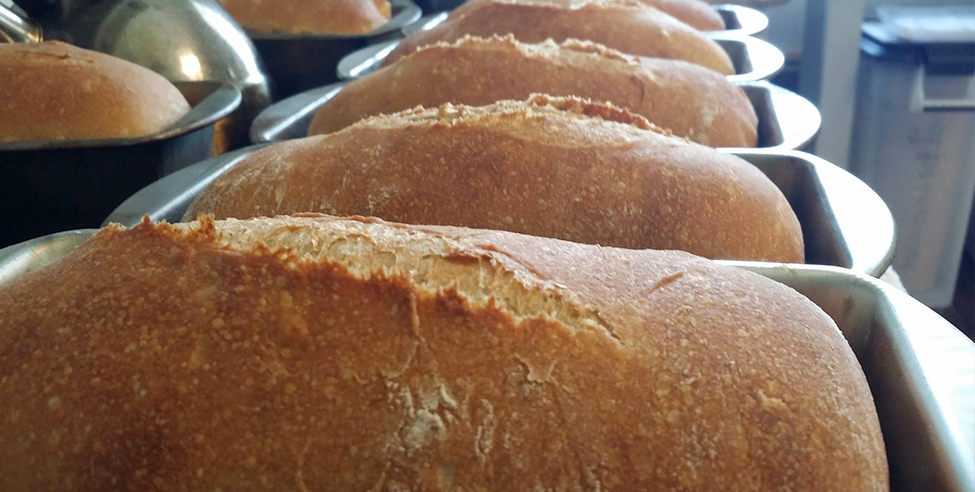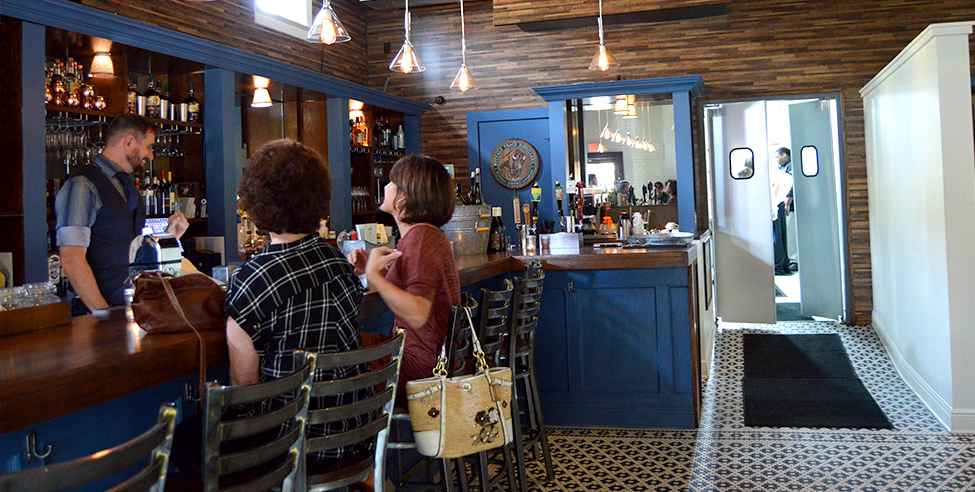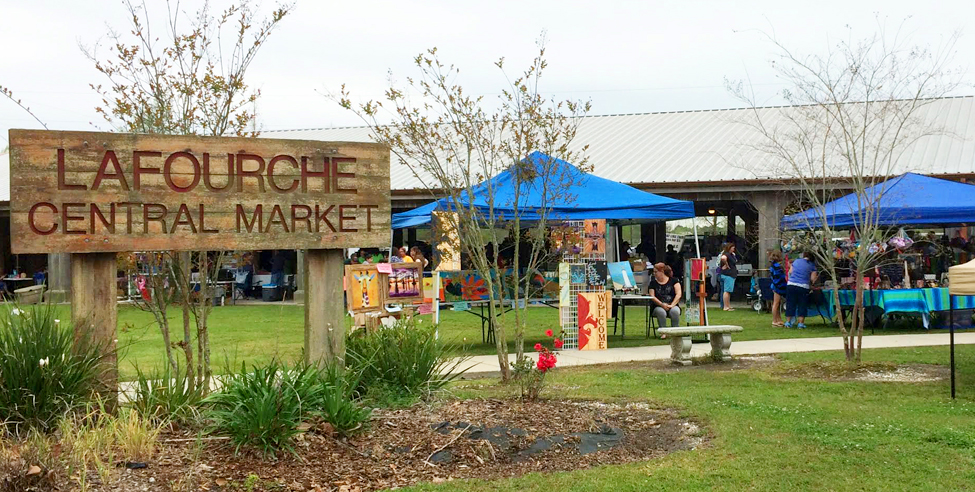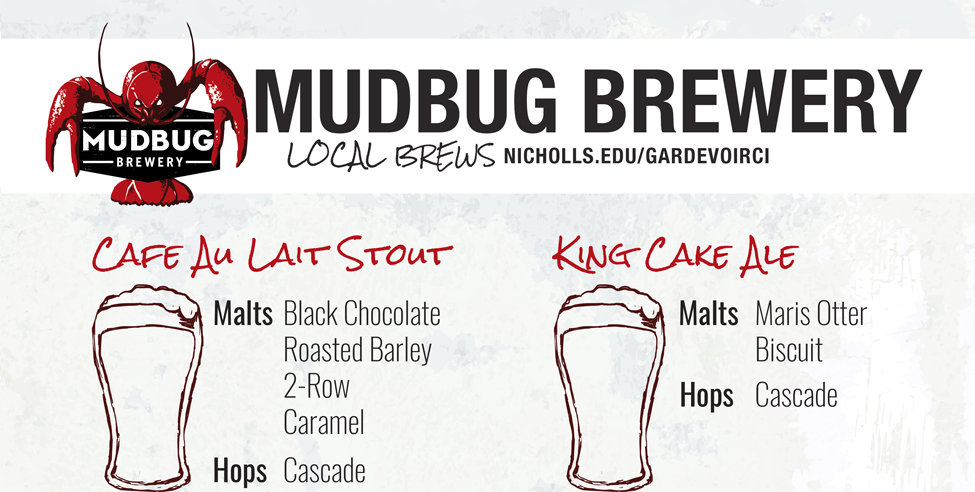12th Street Bakery // A Community Supported Approach

by Spencer Valdespino, Writer & Videographer Baking and community just go together. And Alaskan native Elizabeth Cotter is putting the community into her bakery with a community supported approach — instead of going to a storefront, customers sign up for weekly bread drops. Formerly a resident of Alaska, Cotter had a bakery called “Bun on the Run” that specialized in the making and distribution of different breads. She met her husband while taking a bicycling tour around the country, and when the tour took them through the South they fell in love with the small town vibe of Thibodaux. Cotter eventually sold her Alaskan bakery and headed south to Thibodaux to continue the business — now called 12th Street Bakery. Unlike most, 12th Street Bakery has no storefront, but is instead produced from Cotter’s home kitchen. Thanks to a Louisiana law that was passed in 2014, The Cottage Act, home bakers are allowed to bake in their own kitchens and sell their specific foods. This has helped her business grow tremendously. The promotion of the bakery is spread through word of mouth and seems to be working so far, according to Cotter. She brings her creations to the Rienzi Market on Thursday and Saturdays, and on Saturday she brings them to markets in Houma. This gives her the ability to get her product out to the public. People of the community are able to sign up for a monthly subscription. Customers can receive one or two loaves of bread per week from pickups located at Peltier Park or the St. Francis gardens. The two loaves are broken down into two categories of artisan and sandwich variety. This past week, April 28, 12th Street Bakery produced a sunflower brand for the artisan bread and a French rosemary for the sandwich category. Currently, 12th Street Bakery is “piggy backing” off of the community supported agriculture. CSA is a system in which farm operations are supported by shareholders within the community who share both the benefits and risks of food production. It is also a way to cut out the middle man and for the community residents to become investors who can receive weekly fresh produce items. Cotter noticed that Baton Rouge and New Orleans had CSA programs but Thibodaux did not, so she decided to start her own rendition of it. As of now, Cotter is close to finishing her 3-year-long project of building a bakery in her backyard. She said the electricity will be assembled within the next couple of weeks, which will help quicken the process of building a business that will be able to grow and accommodate more customers. She looks to expand to more residents as well because her backyard bakery will allow her to finish more orders more quickly. Just like her bakery in Alaska, Cotter hopes that this one will grow to be just as successful. “This bakery has been educational to say the least,” Cotter says. “In due time, it will expand and become a promising business.” https://youtu.be/9JbEnrf-wOo
Cinclare // Fresh, Local Dining

by Ian Shows, Video/Audio Editor
Donner-Peltier Distillers // Local Spirits

by Spencer Valdespino, Writer & Videographer The sweet scent of molasses and whiskey quickly fill the nostrils of customers who walk in. The small lobby has seating for about ten people–standing room for maybe 50. The walls are decorated with the award-winning liquor bottles. Souvenirs of glasses, sweaters, t-shirts and alcohol are also on display for customers to consider buying. Clear glass windows let on-lookers view the room where the liquor is Welcome to DONNER-PELTIER DISTILLERIES. This local establishment is fully reliant on locally homegrown components. They use all natural Louisiana grown ingredients in all of their spirits and are involved with everything from its raw ingredients to the bottling process. “This may be the longer process, but the final product that is made is well worth it,” says Taryn Naquin Clement, Donner-Peltier’s manager. The distillery is popular for its three different brands: Oryza, LA 1 and Rougaroux. They have six different spirits: vodka, gin, whiskey and three rums. The following three spirits are all rums and have the same title name with different subheadings to be distinguished from each other. The title name for the trio is called ROUGAROUX, after the Cajun folklore werewolf. The story goes that this Cajun wolf has the head of a wolf and the body of a human and it lurks in the deep parts of sugarcane fields found in southern Louisiana. Like most wolf tales, the Rougaroux will come out during a full moon, which explains the name of the Donner Peltier-Distilleries’ spirit, FULL MOON DARK RUM. The Rougaroux’s lair can be found in the swamps and canes of the south. Staying true to the legend, gold eyes piercing through sugarcane is the image on the front of the bottle. This rum is aged on white oak for smoothness and flavor. According to legend, the only way to see a Rougaroux in full form is if it about to eat or put a curse on someone. If a curse is cast, it will last for 101 days which is where SUGARSHINE CLEAR RUM comes into play. This 101 proof rum is strong like a moonshine but sugar and molasses are used to make it. The ingredients are raw sugars and bold molasses that is both grown and milled from a family-owned farm two miles from the distillery. A way to stay safe from this “worldly” creature is possible. A Rougaroux in human form can be identified by having six fingers on each hand. Legend has it that if a family puts 13 pennies outside their door, the Rougaroux will start to count them before entering a home but once he reaches 12, he gets confused and begins to start over. He repeats this until the sun comes up which is when he must go back to his lair in the sugarcane field. ROUGAROUX 13 PRALINE RUM is named after this part of the story. The local aspect is, once again, brought together in this specific rum by using local raw sugar, molasses and craft-made cane syrup. The legend exists to this day and Donner-Peltier Distillery can be found with 13 pennies sitting outside their door, considering there is a sugarcane field sitting directly across from them. Not fully reliant on just rum, DPD is home to other crafts as well. ORYZA VODKA: With three different steps in creating “this masterpiece” vodka, Donner-Peltier does not cut corners to make it. Each vodka is made by hand, one batch at a time and with the use of locally grown rice, considering “Oryza” is Latin for rice. Rice is used in these spirits for two reasons, one being the homegrown effect of the distillery. The company purchases its rice from Acadian Riceville just outside Lafayette keeping with Louisiana ingredients. The second reason is that no other companies use rice to make vodka. Most will use grain but more prefer corn. “By using a completely new ingredient that no else is doing, it sets us apart,” explains Clement as she distributes small plastic shot cups to the customers for tasting. “This brings more characteristics to our vodka when most others are so neutral.” This specific vodka is one of only two rice-made vodkas in the United States. It has won the Gold Medal World Spirits Award, and it’s most recent and highest accolade came last year when it was awarded a double gold in “The Fifty Best Vodka” competition. ORYZA GIN: By law, for a drink to be considered gin, it must have a certain amount of juniper berries. After that, anything can be added to the concoction and DPD does just that. This Louisiana-gin uses 11 botanicals that, like most gin made, includes juniper, lavender, pink peppercorn, oris root, angelica root, paradise seed, cantaloupe, lemon and orange peels. But the ingredient that ties this gin closer to the Louisiana culture is satsuma. “Everyone in Louisiana has a satsuma tree in their backyard,” Clement says with a laugh in-between words. Obviously an exaggeration, but not by much. “We usually grab about 500 satsumas from my grandfather’s tree here in Thibodaux to use in the gin.” Keeping up the trend of award winning liquor, Oryza Gin has a total of four awards, the most recent being in 2015 when it won gold at the Beverage Testing Institute. LOUISIANA 1 WHISKEY: The most popular and historical spirit that DPD has to offer is the whiskey. Not only named after Highway 1 that runs parallel with the distillery, LA1 gets its name from being the first aged whiskey in Louisiana since the prohibition ended in 1933. This specific whiskey can be found with four special ingredients inside it: barley, corn, rice and rye. According to the Donner-Peltier homepage, barley is used for the balance and for a cocoa taste, rye is used for spice, corn for the body and of course, local rice for the sweetness. “It’s incredible to think that this is the first aged whiskey since prohibition because down south, we have some heavy whiskey drinkers,” explains
Lafourche Central Market // A Rural Market

by Andetrie Vicks, Writer & Special Sections With hog headcheese and cracklings, chicken and duck eggs, beef and turkey jerky, arts and crafts, starter plants and more, there is something for everyone at the LAFOURCHE CENTRAL MARKET, where all the items here are fresh, homegrown or made by their vendor with no middleman involved. “The vendors love to talk to customers, and they always have interesting stories,” says Brooke Guidry, Coordinator for Lafourche Central Market. They are there and eager to answer questions, like what type of fertilizer they used to grow their plants, how much time it took to cultivate them, how they make their products or how they grow their fruits and vegetables. This experience gives the customer more knowledge about the food and crafts they are buying, one they can’t get at grocery stores or other businesses. At the same time, it allows the community to come together and have a good time. “The market is a way to get the residents together and celebrate its rich southern and Cajun culture,” says Guidry. “It’s a nice relaxing place to be.” The atmosphere is very open and carefree and the people are friendly and personable. It’s held under a pavilion with the vendors set up like a square within a square, shaded from the heat of the Louisiana sun. On the stage, local bands set up to play soft music to add to the relaxed atmosphere. Lafourche Central Market opened for business in October 2012. Originally, it was opened by Options for Independence, a non-profit organization providing community based services to persons with disabilities. The organization turned it over to the Lafourche Parish Government in January 2016, and now its chief objective is to provide Lafourche Parish with a central place to get fresh produce and meats and to display the craft talents of the local residents. It is open year-round on Saturdays from 8 a.m. to 12 p.m., located at 4484 Hwy 1 in Raceland, under the Hwy 90 overpass. It’s easy to find by its big white sign off of Highway 1 in Raceland with the words “Lafourche Central Market” printed on it. Once there, everyone can enjoy in the experience of buying directly from local farmers and crafters who are there to offer their goods to the surrounding community, some of which includes fresh-caught seafood when the season is right. To ensure that each product offered is indeed homegrown and produced, each vendor is subject to periodic inspections whether they sell crafts, produce, or fresh fruits and vegetables. The market is also on Facebook, where photos, video and more information on the products and people can be found. Nothing takes the place of the actual experience, though. There’s fresh food, handmade crafts and conversation waiting to be had. Guidry says, “Come out, enjoy the atmosphere and have a conversation with our vendors.”
Mudbug Brewery // Locally Inspired Beer

by Betsy Davis, Features Editor Anyone with a craving for some liquid Cajun culture can take a ride down Highway 3185 and indulge their senses at the Mudbug Brewery, a young Thibodaux-based manufacturing and distribution business that’s got something to different to offer even the most curious pallets. The King Cake Ale is one of Mudbug’s flagship beers. Tones of cinnamon and vanilla bean give it that sweet king cake flavor connecting it to Mardi Gras and the regions favorite sweet treat. The Intercostal IPA brew is named for the Gulf Intercostal Waterway that runs through the state, and the Pelican Pilsner pays homage to the Louisiana state bird, the brown pelican. In each of these, and the others like the Café au Lait Coffee Milk Stout, there’s little flavor of the South’s colorful culture, and that is something that the native owners of the brewery have worked hard to capture from day one. “We want to keep it as culturally relevant as possible,” said Leith Adams in a Times Picayune article shortly after the brewery first opened its doors. Looking in on it now, Adams and the other two owners of Mudbugs, Brance Lloyd and Peter Leichty, seem to have done just that. Since Mudbug’s opening in 2014, they and the surrounding community have watched the brewery blossom into a reputable and culturally-rooted establishment. The business distributes its brews to local restaurants and bars like Pepper’s Pizzeria, Fremin’s and Spahr’s Seafood Restaurants in Thibodaux, and it has branched out to the Houma and New Orleans area as well. For anyone interested in a tasting, though, all they have to do is walk through the front doors of the brewery itself and settle in at the bar of the tasting room for an order. The setting is rustic and clean with a comfortable décor, ambient lighting and a variety of ales to choose from. Tables and seating are available throughout the room, when there is space, and right across from the bar is a wide window that lets customers take a peek at where all of the magic happens in the back half of the building. This is where the large metal tanks and brewing equipment busily works to churn out one Cajun themed ale after another. Thus far, the response has been positive with the locals and surrounding community. Mudbugs has almost 1,000 followers on their Twitter feed and a few thousand more followers on Facebook. The brewery uses these media sites to keep in touch with customers, answer questions about machinery, equipment and distribution, and to let everyone know what Cajun-themed ale they will be brewing up next. Some of the ales offered are seasonal, like the Burning Saison that’s brewed with local molasses for the sugarcane harvest season in the area, or a Cajun Stout brewed with cayenne pepper to add a little kick to the Louisiana winter. Now as summer approaches, locals can expect some new and enticing flavors from the Mudbug Brewery, but throughout the year everyone will know that one thing is certain: This is one place that is mixing up its batches Cajun-style. https://youtu.be/SV9JiRzkHs0
